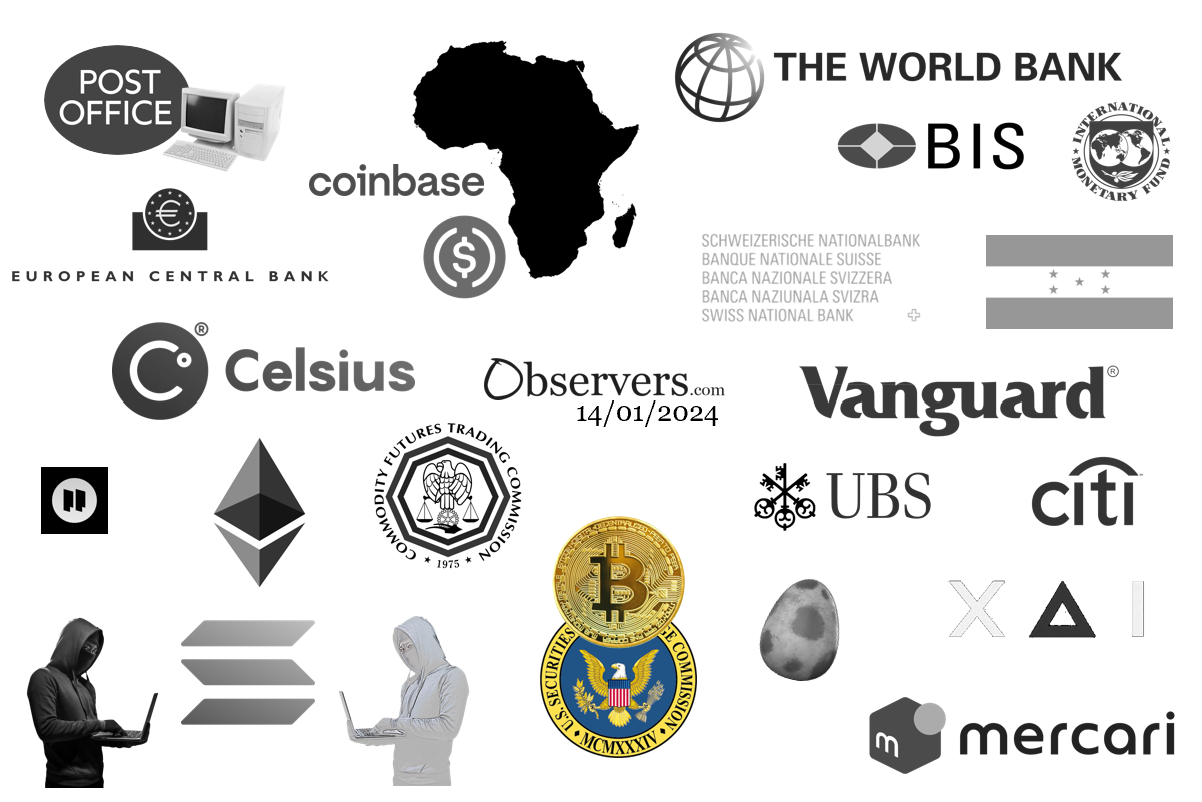
The U.K. government has found itself in the middle of a(nother) political firestorm this week... and all thanks to a TV drama. Mr Bates vs the Post Office told the story of hundreds of sub-postmasters who were prosecuted for false accounting and theft between 1999 and 2015, due to faulty accounting software.
Although the failings of the software had long been known and the unsound cases against the employees were previously investigated and reported by journalists, it was not until the drama highlighted the injustice to a wider audience that the government started to do something about exonerating the convicted staff.
But who has been filing false accounts in the crypto world this week? And who is just the innocent victim of a software error? Read on to find out.
The news this week has been absolutely dominated by the SEC's decision to approve 11 spot bitcoin ETFs on Wednesday. We collated all the news and opinion in anticipation of the outcome (including an 11th-hour hoax approval posted on the 'compromised' SEC X account) and then stepped back in to survey the scene once the dust had (almost) settled.
But it isn't just the SEC which is evolving its stance towards crypto. The CFTC has also shown that it isn't perhaps the crypto-loathing institution that we had all assumed, by publishing a report into DeFi urging government agencies to work with the industry to mitigate risks.
Way back in the time before spot bitcoin ETFs were openly being sold on U.S. markets, if you can remember that far, ex-YouTuber Logan Paul offered to buy back the NFTs from his CryptoZoo play-to-earn game. Two years after the game's failure to launch, Paul finally offered to put up $2.3 million to buy back the worthless images... as long as investors promise not to sue him, which could cost him an awful lot more than that.
Not buying back NFTs, but clawing back funds, or at least hoping to, bankrupt crypto lender Celsius is demanding the return of monies from clients who withdrew assets in the 90 days prior to the bankruptcy, which can be considered preferential withdrawals. And while we are dealing with the scams, bankruptcies and hacks, Solana's rise to prominence has started to attract the darker side of society. The network has seen at least one recent rug pull, and a host of drainers become available on the dark web for would-be scammers to subscribe to.
On a more positive note for Solana, a recent publication from the network noted the healthy state of its developer community, with a reported average of 2500 to 3000 active developers building on the network every month. From Solana to Arbitrum, as XAI network has conducted an airdrop to introduce the launch of its gaming-focused Layer 3 mainnet using Arbitrum Orbit technology. And Ethereum's Vitalik Buterin has this week suggested that a modest increase in the block gas limit size would be 'reasonable', in a Reddit AMA. Buterin noted the lack of 'real' increase in the last three years, and drew parallels to Moore's law, which states that the number of transistors in a microchip doubles every two years.
In Japan, major online secondary marketplace Mercari added bitcoin payment functionality to its site, although receiving bitcoin for goods sold seemed a bit convoluted. And Coinbase has teamed up with Yellow Card to push USDC adoption in Africa, while USDC issuer Circle has filed for an IPO in the U.S.
Finally, our Banking and CBDC Roundup noted the importance of offline payments for the ECB's digital euro CBDC project, the potential for Nigeria to sell out its own eNaira CBDC by approving a new stablecoin in the country, and a joint project between BIS, the World Bank and the IMF to build a platform for tokenized promissory notes to be used by development banks.
Anyway, we're off to binge-watch some boxsets to find out what will be happening in the news next week.
